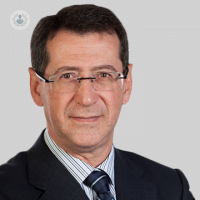Heart failure
Written by:Heart failure is the inability of the heart to pump enough blood to meet the needs of the tissues. Any alteration in heart structure or rhythm can lead to heart failure.
 The basic causes of heart failure, treated by specialists in adult cardiology , are mainly degenerative, ie they are linked to the aging process of the human being. There are factors that can accelerate the onset of heart diseases that cause heart failure: sedentary lifestyle, snuff, diabetes, hypertension, diabetes and obesity, among others. The degenerative process through different mechanisms causes alterations of the coronary arteries, the heart muscle, valves or arrhythmias which eventually lead to the onset of symptoms of heart failure.
The basic causes of heart failure, treated by specialists in adult cardiology , are mainly degenerative, ie they are linked to the aging process of the human being. There are factors that can accelerate the onset of heart diseases that cause heart failure: sedentary lifestyle, snuff, diabetes, hypertension, diabetes and obesity, among others. The degenerative process through different mechanisms causes alterations of the coronary arteries, the heart muscle, valves or arrhythmias which eventually lead to the onset of symptoms of heart failure.
Symptoms of heart failure
The main symptom is shortness of breath or difficulty breathing, shortness of breath, the activities previously performed normally. At first it appears only with significant efforts, but gradually the patient suffers less stress or at rest. We also found swelling in the ankles (edema). They are due primarily to the implementation by the body mechanisms that attempt compensation impaired heart although these can effectively improve the situation, eventually causing a tendency to remove the kidney less water, and it builds up in the lungs and lower body parts, feet and ankles.
Anyone with symptoms will undergo a complete cardiac examination, which must include a heart and lung auscultation, inspection of looking ankles edema, an electrocardiogram and a chest radiograph. If there is any anomaly study heart ultrasound (echocardiogram) and sometimes a stress test for determining the cause of the disorder should be performed.
Treatment of heart failure
Treatment should be based on correcting the cause to cure heart failure: cessation of arrhythmia, normalization of the coronary arteries, etc.. If this is not possible, heart failure becomes a chronic disease in which drugs are administered by side trying to control the excess compensation and other symptoms are primarily controlled with medications that remove excess body water, diuretics. In more severe cases may require implantation of a pacemaker or defibrillator to prevent sudden death, and even heart transplantation in appropriate candidates.
We must not forget that the main thing is prevention by adopting healthy lifestyle habits. Leaving the snuff is essential, besides strictly controlled diabetes or hypertension. For prevention, help a diet rich in fish, vegetables, legumes and fruits, with a fight against a sedentary lifestyle.
In case chronic heart failure is made, measures should be stricter. Making correct medication is essential in these most extreme cases.


